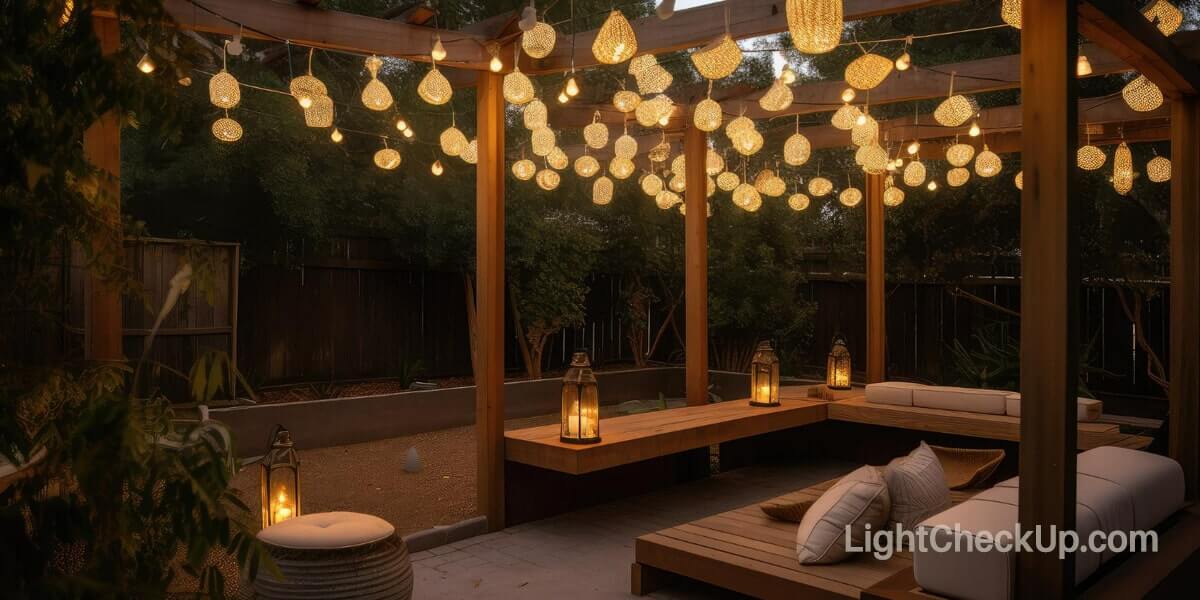Do you own a luxury pool but worry about the high cost of keeping it warm? You can keep your pool warm without spending a lot. In this article, we’ll compare solar pool heaters and gas pool heating systems and their pros and cons.
Solar pool heaters heat water using solar energy, whereas electric or gas pool heaters require electricity.
Although more expensive and ecologically beneficial, solar pool heaters may not be ideal for everyone. Regular pool heaters heat faster but cost more.
We’ll explore the benefits and downsides of each pool heater so you can choose the ideal one.
Compare floating solar pool heaters to traditional pool heaters for cost-effectiveness, eco-friendliness, and environmental preservation.

Solar Pool
Why does solar heating work?
Solar pool heating uses solar energy to heat pool water. Solar collectors on your roof or yard capture the sun’s heat and distribute it to the pool water. Once heated, the water is recycled back into the pool.
The system’s automated valve regulates solar collector water flow. Sunlight opens the valve, letting water flow through the collectors. Water is bypassed when the valve shuts in the shade.
Solar pool heating is clean and effective. With no emissions or pollutants, it may lower your energy expenses.
Solar vs. heat pump vs. gas heater
Electric heat pumps transmit heat between locations. Pool heat pumps deliver atmospheric heat to pool water. Heat pumps heat pools efficiently and save on energy costs.
Gas heaters heat pool water using natural gas or propane. Gas heaters are more costly than heat pumps, but they heat pools faster.
Solar pool heaters heat water using solar energy. Solar pool heaters are greener than heat pumps or gas heaters, but they may heat your pool slower.
How to Make a Solar Pool Heater
There are several reasons to heat your pool. These are frequent reasons:
Increase the swimming season. Even in warmer climates, heated pools may be used longer. You may use your pool longer.
Make pool swimming more enjoyable. Warm water is more enjoyable than cold water. This applies to elders and children.
Lower hypothermia risk. The body’s temperature below 95 °F causes hypothermia. Exciting and lethal. Pool heat reduces hypothermia.
Improve pool water quality. Heated water prevents algae growth in pools. Less time and money for pool maintenance.
Value your home. A heated pool may increase home prices by 7%. Your property attracts purchasers with a lovely, heated pool.
Heating a pool is great. Heated pools save money, extend the swimming season, and make swimming safer.

Solar Pool
How does electric heating work?
Electric pool heating is popular among homeowners. Resistance and heat pump electric pool heaters are the major kinds. Resistance heaters use electric currents, whereas heat pumps use air or water. Heat pumps are more efficient than resistive heaters but cost more upfront.
Solar pool heaters for inground pools are far more expensive than electric ones. Pool heater solar panels are cheaper to operate and save money over time. DIY solar pool heaters’ lifetime costs vary depending on pool size, climate, and solar panel efficiency.
When choosing an electric pool heater, consider the upfront and running expenses. Solar pool heater panels are more efficient and eco-friendly.
How much does it cost to install a solar or gas pool heater?
The cost of installing a standard electrical pool heater depends on the system. Heat pumps are more costly upfront but cheaper to operate than electric resistance heaters.
Heat pump installation normally costs $5,000. From $1,000 to $2,000, electric resistance heating systems are installed.
Solar pool heaters cost $3,500–$12,000. Solar pool heating is monthly-free.
Any Solar heating for pools is low-maintenance. However, above-ground pool solar heater need less maintenance than electric ones. You can check on Amazon about
Solar pool heater reviews.
The finest pool heater depends on your budget, climate, and environmental choices.
An electric resistance heating system may be the most cost-effective. For the most efficient and ecologically responsible solution, a solar pool heating system may be best.
You decide which pool heater to install. Choose the best choice after weighing the advantages and drawbacks. Consider money, climate, and long-term objectives while choosing.
Maintenance expenses for solar pool heating systems
Solar pool heating systems endure for decades and need no maintenance. They’re eco-friendly since they utilize renewable energy and generate no air pollution.
Solar pool heating systems simply require a rainy rinse-off. Most competent pool contractors provide warranties and skilled personnel to assist with any difficulties.

Solar Pool
Maintenance charges for electric pool heaters
Electric pool heaters need less upkeep. Heat pump pool heaters last 10–20 years, whereas electric resistance heaters last 5–10 years. However, proper maintenance extends their longevity.
Maintenance for your electric pool heater includes:
- Checking the device for leaks and damage
- Regularly cleaning filters and coils
- As required, drain and refill the unit.
Investing in a pool cover may also save energy and money. Pool coverings also keep trash and pollutants out.
Does solar pool heating work in the winter?
Solar pool heating may operate in the winter, but the climate affects performance. Solar pool heating may not work in frigid winters. In mild winters, solar pool heating may prolong the swimming season.
Solar collectors capture the sun’s heat in solar pool heating systems. The pool water receives heat from a heat exchanger. How much heat solar collectors can capture depends on the weather. Winter reduces sunshine, making solar pool heating systems less efficient.
There are ways to boost your solar pool heating system’s winter effectiveness. Solar collectors should be clean and debris-free first. Second, position solar collectors for maximum sunlight. Third, use a solar pool cover to retain heat.
With regular maintenance, a solar pool heating system can heat your pool in the winter and prolong the swimming season.
How many solar panels to heat a pool?
You need solar panels to heat your pool based on its size, climate, efficiency, and target temperature.
Solar panels cost 1 square foot per square foot of pool surface. The 100-square-foot pool requires 100 solar panels.
There are several considerations:
- Solar panel efficiency depends on sunshine. In sunny climates, you need fewer solar panels than in gloomy climates.
- The quantity of solar panels you require depends on their efficiency. Heating your pool with more efficient panels requires fewer panels.
- Your pool may require extra solar panels if trees or other buildings shadow it.
- Your pool’s temperature will also determine how many solar panels you need. More solar panels are needed to heat your pool.
A solar installation can help you decide how many solar panels you need to heat your pool. They may consider all parameters and propose the optimum number of panels.

Solar Pool
FAQ
How fast does a solar cover heat a pool?
Solar covers can heat a pool by 5 degrees in 12 hours, but they work best on bright days. The kind of solar cover, weather, pool size, sunlight exposure, and pool quality impact how rapidly it heats a pool. Solar coverings collect heat from the sun and prevent it from exiting the pool. Solar coverings work well with pool heaters.
Do solar pool heaters actually function?
Yes, solar pool warmers work. They heat your pool using solar energy. How much heat solar collectors can capture depends on the weather. Solar pool heating is beneficial in locations with long, sunny summers.
How much does solar heating warm a swimming pool?
A solar water heater for your pool may provide heat to your pool depending on its size, sunshine, and solar collector effectiveness. Pool solar heating often boosts pool temperatures by several degrees.
Do solar pool heaters use electricity?
Some solar pool warmers utilize power, although considerably less than standard ones. Electric pool solar heaters maximize solar heat.
What are the advantages of solar pool heaters?
Solar pool heaters have several benefits. Advantages include:
- Environmentally friendly. Eco-conscious folks might choose the best solar pool heaters, which emit no emissions.
- They save energy. Solar pool heating may lower your energy expenses since it uses less electricity.
- They need little upkeep. Low maintenance saves time and money with a solar heater for the pool.
- They may lengthen the swimming season. Floating pool solar heaters keep pools warm in colder weather, extending the swimming season. ason.

Solar Pool
How can a pool be heated most affordably?
The cheapest method for heating pool water with solar energy depends on size, climate, and energy costs. One of the cheapest pool heaters is solar.
READ ALSO: Solar Parking Lot Lighting Installation: Easy Setup And Fix [Read First]
Which is superior, solar or electric pool heating?
The finest pool heater depends on your budget, climate, and environmental choices. Solar pool heaters are energy-efficient and eco-friendly. Electric pool heaters are affordable.
Do pool heaters require electricity?
Not all pool heaters require power. Sunlight heats water with solar dome pool heaters, which need no power. Electric pool heaters need power.
Should my solar pool heater operate at night?
There’s no need to operate your solar pool heater at night. Solar pool heaters gather heat from the sun and do not operate at night. You may wish to use your solar pool heater throughout the day to capture more heat.
Should I turn off my pool’s solar heater at night?
You may switch off your solar pool heater at night. However, it is unnecessary. Solar pool heaters consume no power when not gathering heat, so turning them off is pointless.
How does a solar pool heating system work?
A solar pool heater transfers solar heat to pool water. Solar collectors are usually put on your roof or near your pool. Solar collectors capture solar heat and transmit it to pool water through a heat exchanger.
READ ALSO: Solar Signal Light: How Does The Solar Traffic Signal Blinker Work?








